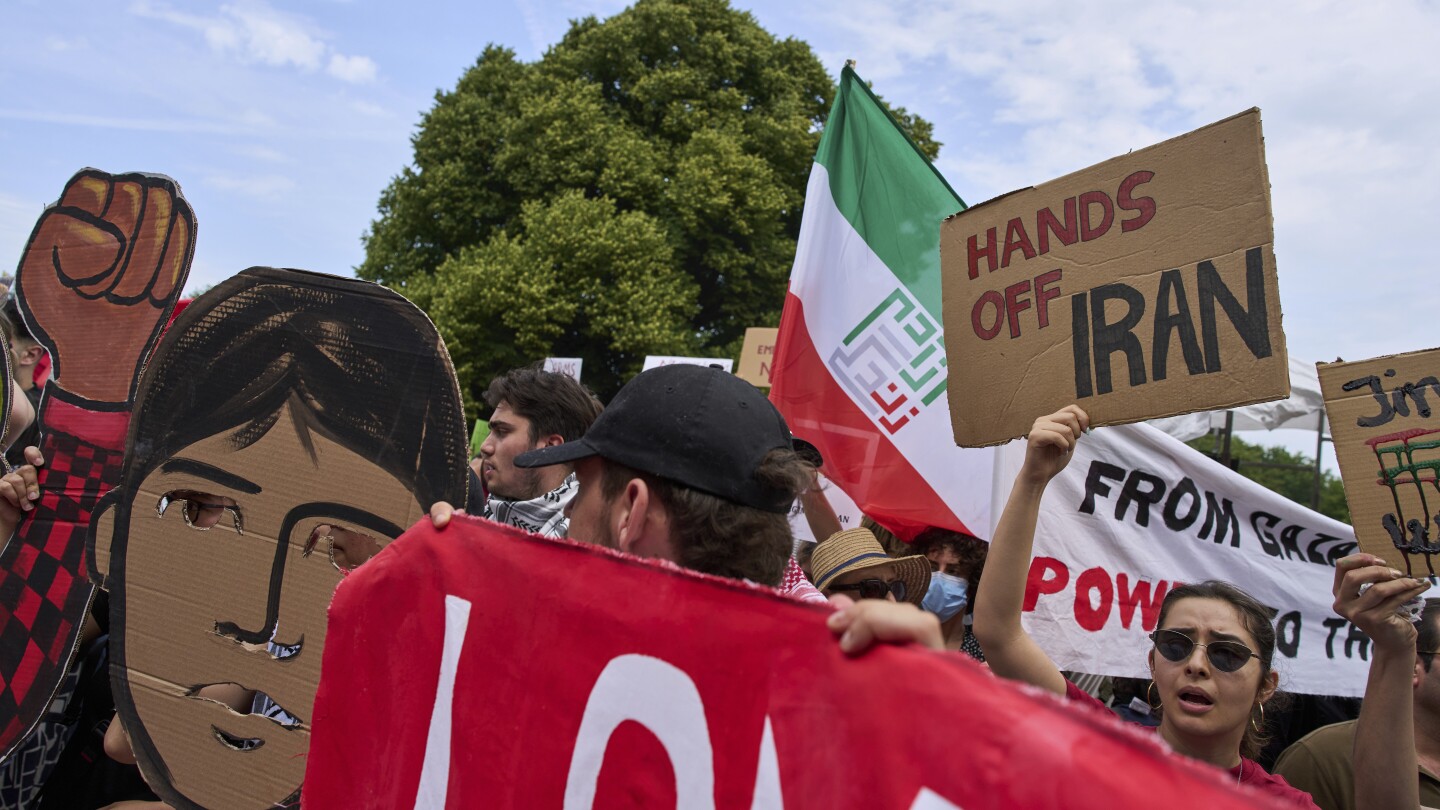THE HAGUE, Netherlands — In a fervent display of dissent, hundreds gathered in The Hague on Sunday to protest against NATO, military expenditures, and the looming threat of conflict with Iran. This demonstration comes just two days before the city hosts a pivotal NATO summit aimed at bolstering defense budgets among member nations.
Belgian politician Jos d’Haese addressed the crowd at a park near the summit venue, urging, “Let’s invest in peace and sustainable energy.” The protest, initially organized to oppose NATO and the ongoing war in Gaza, saw participation from Iranian demonstrators brandishing banners that read “No Iran War,” a direct response to recent U.S. military actions targeting Iran’s nuclear sites.
“We are opposed to war. People want to live a peaceful life,” expressed 74-year-old Hossein Hamadani, an Iranian residing in the Netherlands. “Look at the environment. Things are not good. So why do we spend money on war?” he added, encapsulating the sentiments of many present.
NATO Summit and Defense Spending Debate
The Netherlands is set to host the annual meeting of the 32-nation alliance starting Tuesday, with leaders convening on Wednesday. A key agenda item is the negotiation of increased defense spending, a demand strongly advocated by U.S. President Donald Trump. While a consensus seemed imminent last week, Spain’s Prime Minister Pedro Sánchez threw a wrench into the proceedings, cautioning that committing to a defense budget of 5% of GDP would be both “unreasonable” and “counterproductive.”
Since the full-scale invasion of Ukraine by Russian President Vladimir Putin over three years ago, NATO allies have significantly increased their defense budgets. However, nearly a third of the member nations still fall short of the alliance’s target of allocating at least 2% of their GDP to defense.
Security Measures and Historical Context
The summit is under the protection of “Orange Shield,” the largest security operation ever undertaken by the Dutch. This extensive effort involves thousands of police and military personnel, drones, no-fly zones, and cybersecurity experts, underscoring the heightened security concerns surrounding the event.
Historically, NATO summits have often been met with protests, reflecting widespread public scrutiny over military spending and international military interventions. The current protests echo past demonstrations, such as those during the Iraq War, where public opinion significantly influenced political discourse and policy decisions.
Expert Opinions and Future Implications
According to defense analyst Dr. Maria Thompson, “The protests highlight a growing public demand for transparency and accountability in defense spending. There’s a clear call for reallocating resources towards sustainable development and peace initiatives.”
The outcome of the summit could have far-reaching implications for international relations and defense policies. If NATO members fail to reach a consensus on defense spending, it could strain alliances and impact global security dynamics.
As the summit approaches, all eyes will be on The Hague, where the decisions made could shape the future of international defense strategies and diplomatic relations. The protests serve as a poignant reminder of the public’s role in influencing policy and the ongoing debate over military expenditures versus humanitarian priorities.
